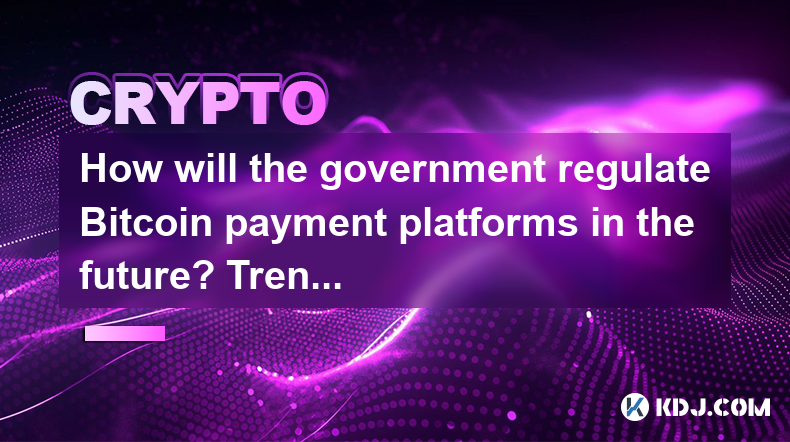-
 Bitcoin
Bitcoin $108,338.0981
-0.13% -
 Ethereum
Ethereum $2,566.4077
1.16% -
 Tether USDt
Tether USDt $1.0001
-0.01% -
 XRP
XRP $2.2841
-2.59% -
 BNB
BNB $658.5241
-0.17% -
 Solana
Solana $150.3819
-1.08% -
 USDC
USDC $0.9999
-0.01% -
 TRON
TRON $0.2864
-0.24% -
 Dogecoin
Dogecoin $0.1694
0.24% -
 Cardano
Cardano $0.5813
-0.72% -
 Hyperliquid
Hyperliquid $37.8292
-4.60% -
 Bitcoin Cash
Bitcoin Cash $503.3593
1.69% -
 Sui
Sui $2.8784
-0.69% -
 Chainlink
Chainlink $13.4784
-0.43% -
 UNUS SED LEO
UNUS SED LEO $9.0793
-0.27% -
 Stellar
Stellar $0.2537
-0.41% -
 Avalanche
Avalanche $18.0047
-0.23% -
 Shiba Inu
Shiba Inu $0.0...01181
1.56% -
 Hedera
Hedera $0.1608
0.49% -
 Toncoin
Toncoin $2.7568
-0.93% -
 Litecoin
Litecoin $86.4121
-0.20% -
 Monero
Monero $313.7273
-0.86% -
 Polkadot
Polkadot $3.3715
-0.66% -
 Dai
Dai $1.0001
0.01% -
 Ethena USDe
Ethena USDe $1.0004
0.03% -
 Bitget Token
Bitget Token $4.2902
-0.54% -
 Uniswap
Uniswap $7.5361
2.73% -
 Aave
Aave $285.6090
-0.55% -
 Pepe
Pepe $0.0...09958
0.28% -
 Pi
Pi $0.4560
-0.65%
How will the government regulate Bitcoin payment platforms in the future? Trend prediction
2025/04/22 03:42

Introduction to Government Regulation of Bitcoin Payment Platforms
The regulation of Bitcoin payment platforms by governments is a topic of significant interest and concern within the cryptocurrency community. As Bitcoin and other cryptocurrencies gain popularity, governments worldwide are grappling with how to oversee these digital assets and the platforms that facilitate their use. This article explores the current trends in government regulation of Bitcoin payment platforms, providing insights into the approaches being taken and the potential implications for users and businesses.
Current Regulatory Landscape
Governments around the world have adopted various approaches to regulating Bitcoin payment platforms. In the United States, the Financial Crimes Enforcement Network (FinCEN) has classified Bitcoin exchanges and payment processors as Money Services Businesses (MSBs), subjecting them to anti-money laundering (AML) and know-your-customer (KYC) regulations. This means that Bitcoin payment platforms must implement robust systems to verify the identities of their users and report suspicious activities.
In the European Union, the Fifth Anti-Money Laundering Directive (5AMLD) extends AML and KYC requirements to cryptocurrency exchanges and wallet providers. This directive aims to prevent the use of cryptocurrencies for money laundering and terrorist financing, requiring platforms to adhere to strict compliance standards.
In Asia, countries like Japan have taken a proactive approach to regulating Bitcoin payment platforms. Japan's Payment Services Act requires cryptocurrency exchanges to register with the Financial Services Agency (FSA) and comply with stringent security and operational standards. This has led to a more regulated environment for Bitcoin transactions in Japan.
Trends in Regulatory Approaches
One of the key trends in the regulation of Bitcoin payment platforms is the increasing focus on consumer protection. Governments are recognizing the need to protect users from fraud, theft, and other risks associated with cryptocurrency transactions. This has led to the implementation of regulations that require platforms to maintain high levels of security and transparency.
Another trend is the harmonization of regulations across jurisdictions. As cryptocurrencies operate on a global scale, there is a growing need for consistent regulatory frameworks to prevent regulatory arbitrage and ensure a level playing field for businesses. International organizations like the Financial Action Task Force (FATF) are working to develop global standards for the regulation of virtual assets and their service providers.
The use of technology to enhance regulatory compliance is also a notable trend. Regulators are increasingly turning to technologies like blockchain analytics and artificial intelligence to monitor transactions and detect suspicious activities. This allows for more effective enforcement of AML and KYC regulations, reducing the risk of illicit activities on Bitcoin payment platforms.
Impact on Bitcoin Payment Platforms
The regulatory environment has significant implications for Bitcoin payment platforms. Compliance costs are a major concern for many platforms, as they must invest in systems and processes to meet regulatory requirements. This can be particularly challenging for smaller platforms with limited resources.
Operational changes are also common as platforms adapt to new regulations. For example, platforms may need to implement more stringent user verification processes, which can impact the user experience. Additionally, platforms may need to adjust their business models to comply with regulations, such as limiting the types of transactions they facilitate.
Market dynamics can also be affected by regulatory changes. In some cases, regulations may lead to a consolidation of the market, as smaller platforms struggle to comply and larger, more established platforms gain a competitive advantage. Conversely, clear and consistent regulations can foster a more stable and trustworthy environment, attracting more users and businesses to Bitcoin payment platforms.
Case Studies of Regulatory Actions
To illustrate the impact of government regulation on Bitcoin payment platforms, consider the following case studies:
BitLicense in New York: The New York State Department of Financial Services introduced the BitLicense in 2015, a regulatory framework specifically for virtual currency businesses. This has led to a significant reduction in the number of Bitcoin payment platforms operating in New York, as many found the compliance requirements too burdensome.
Binance's Regulatory Challenges: Binance, one of the world's largest cryptocurrency exchanges, has faced regulatory scrutiny in several countries. In 2021, Binance was forced to exit the Canadian market due to new regulations requiring registration with the Ontario Securities Commission. This highlights the challenges that global platforms face in navigating different regulatory environments.
South Korea's Real-Name System: South Korea implemented a real-name system for cryptocurrency transactions in 2021, requiring users to link their bank accounts to their cryptocurrency accounts. This has led to increased transparency and reduced anonymity on Bitcoin payment platforms in South Korea, aligning with the country's efforts to combat money laundering and fraud.
Strategies for Bitcoin Payment Platforms
Given the evolving regulatory landscape, Bitcoin payment platforms must adopt strategies to navigate these challenges effectively. Engaging with regulators is crucial, as platforms can provide valuable insights into the industry and help shape regulations that are both effective and practical. Platforms should also invest in compliance infrastructure, ensuring they have the systems and processes in place to meet regulatory requirements.
Educating users about the importance of compliance and the measures being taken to protect them is another important strategy. By fostering a culture of transparency and trust, platforms can build stronger relationships with their users and enhance their reputation in the market.
Diversifying operations can also help platforms mitigate regulatory risks. By operating in multiple jurisdictions and offering a range of services, platforms can reduce their dependence on any single market and adapt more easily to regulatory changes.
Frequently Asked Questions
Q: How do regulations affect the privacy of Bitcoin users?
A: Regulations such as AML and KYC requirements can impact the privacy of Bitcoin users by requiring platforms to collect and verify personal information. While these measures are intended to prevent illicit activities, they can reduce the anonymity that many users value in cryptocurrencies.
Q: Can Bitcoin payment platforms operate without any regulation?
A: It is highly unlikely for Bitcoin payment platforms to operate without any regulation, as governments are increasingly focused on overseeing the cryptocurrency industry to prevent fraud, money laundering, and other illegal activities. Platforms that attempt to operate without regulation may face legal consequences and lose the trust of users and investors.
Q: How do international regulations impact Bitcoin payment platforms?
A: International regulations can create challenges for Bitcoin payment platforms, as they must navigate different regulatory environments in each jurisdiction where they operate. This can lead to increased compliance costs and operational complexity. However, harmonization efforts by international organizations can help create a more consistent regulatory framework, making it easier for platforms to operate globally.
Q: What role do self-regulatory organizations play in the regulation of Bitcoin payment platforms?
A: Self-regulatory organizations (SROs) can play a significant role in the regulation of Bitcoin payment platforms by setting industry standards and best practices. SROs can help platforms comply with regulations more effectively and foster a culture of responsibility and transparency within the industry. However, SROs must work closely with government regulators to ensure their efforts align with broader regulatory goals.
免責事項:info@kdj.com
提供される情報は取引に関するアドバイスではありません。 kdj.com は、この記事で提供される情報に基づいて行われた投資に対して一切の責任を負いません。暗号通貨は変動性が高いため、十分な調査を行った上で慎重に投資することを強くお勧めします。
このウェブサイトで使用されているコンテンツが著作権を侵害していると思われる場合は、直ちに当社 (info@kdj.com) までご連絡ください。速やかに削除させていただきます。
- Kraken、Lear Wing、Memecoins:シンガポールグランプリへのワイルドライド!
- 2025-07-09 00:50:12
- Ethereum's Wall Street Love&Ruvi Aiの監査集会:暗号カクテル
- 2025-07-09 00:55:12
- onyxcoin(xcn)vs。solana(sol):暗号ゲームでの有望な賭け?
- 2025-07-09 00:30:12
- CoreWeaveの大胆な賭け:AIがどのようにビットコインマイニングを再構築しているか
- 2025-07-09 00:30:12
- Coinbase(Coin)IPOフラッシュバック:ラリーは過度に拡張されていますか、それとも開始していますか?
- 2025-07-08 22:50:12
- ビットコインプライス、イーロンマスク、およびbtcbull:強気の三連ecta?
- 2025-07-09 00:10:12
関連知識

How to customize USDT TRC20 mining fees? Flexible adjustment tutorial
2025-06-13 01:42:24
<h3>Understanding USDT TRC20 Mining Fees</h3><p>Mining fees on the TRON (TRC20) network are essential for processing transactions. U...

USDT TRC20 transaction is stuck? Solution summary
2025-06-14 23:15:05
<h3>Understanding USDT TRC20 Transactions</h3><p>When users mention that a USDT TRC20 transaction is stuck, they typically refer to ...

How to cancel USDT TRC20 unconfirmed transactions? Operation guide
2025-06-13 23:01:04
<h3>Understanding USDT TRC20 Unconfirmed Transactions</h3><p>When dealing with USDT TRC20 transactions, it’s crucial to understand w...

How to check USDT TRC20 balance? Introduction to multiple query methods
2025-06-21 02:42:53
<h3>Understanding USDT TRC20 and Its Importance</h3><p>USDT (Tether) is one of the most widely used stablecoins in the cryptocurrenc...

What to do if USDT TRC20 transfers are congested? Speed up trading skills
2025-06-13 09:56:41
<h3>Understanding USDT TRC20 Transfer Congestion</h3><p>When transferring USDT TRC20, users may occasionally experience delays or co...

The relationship between USDT TRC20 and TRON chain: technical background analysis
2025-06-12 13:28:48
<h3>What is USDT TRC20?</h3><p>USDT TRC20 refers to the Tether (USDT) token issued on the TRON blockchain using the TRC-20 standard....

How to customize USDT TRC20 mining fees? Flexible adjustment tutorial
2025-06-13 01:42:24
<h3>Understanding USDT TRC20 Mining Fees</h3><p>Mining fees on the TRON (TRC20) network are essential for processing transactions. U...

USDT TRC20 transaction is stuck? Solution summary
2025-06-14 23:15:05
<h3>Understanding USDT TRC20 Transactions</h3><p>When users mention that a USDT TRC20 transaction is stuck, they typically refer to ...

How to cancel USDT TRC20 unconfirmed transactions? Operation guide
2025-06-13 23:01:04
<h3>Understanding USDT TRC20 Unconfirmed Transactions</h3><p>When dealing with USDT TRC20 transactions, it’s crucial to understand w...

How to check USDT TRC20 balance? Introduction to multiple query methods
2025-06-21 02:42:53
<h3>Understanding USDT TRC20 and Its Importance</h3><p>USDT (Tether) is one of the most widely used stablecoins in the cryptocurrenc...

What to do if USDT TRC20 transfers are congested? Speed up trading skills
2025-06-13 09:56:41
<h3>Understanding USDT TRC20 Transfer Congestion</h3><p>When transferring USDT TRC20, users may occasionally experience delays or co...

The relationship between USDT TRC20 and TRON chain: technical background analysis
2025-06-12 13:28:48
<h3>What is USDT TRC20?</h3><p>USDT TRC20 refers to the Tether (USDT) token issued on the TRON blockchain using the TRC-20 standard....
すべての記事を見る

























































































